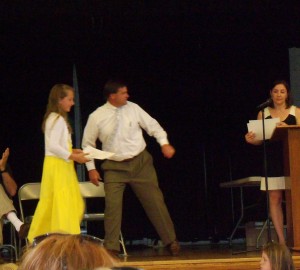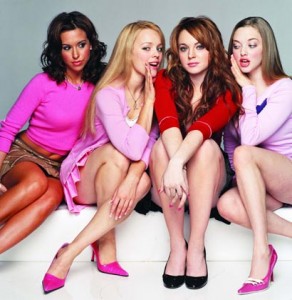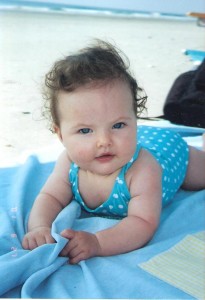Three weeks ago my 11-year old daughter, Emma, graduated from elementary school. As I sat in the school auditorium, I didn’t expect to feel the flood of emotions to come rushing in. At the end of the program, the principal called each student up to receive their certificate. As Emma walked across the stage wearing her yellow dress and flashing her sunny smile, I couldn’t help but think—her future looks so bright. She accepted the certificate and I had a sudden flashback. What happened to my baby girl? How’s it possible that she’s heading to middle school?
Middle school—two words that for many people bring back some of the most awkward moments and memories. Since Emma’s graduation, I’ve been steadily taking a poll among friends, sisters, and neighbors about what they remember about middle school. “How’d you describe your years at middle school?” I asked.
What a loaded question and what a reaction.
“Completely insecure,” “Mean girls,” “Awful, just awful,” and “You couldn’t pay me enough money to do that again,” were just the highlights of a commonly shared perspective—for most people, middle school sucks.
It got me thinking back to my middle school years. Truth be told, I didn’t attend an official middle school. Instead, I went to St. Mary’s Catholic Grammar school with grades kindergarten—eighth. But there was something quite different from the 7th—8th grade wing from the 5th—6th grade wing. It seemed overnight that cliques became tighter and some girls transformed from carefree and independent to boy-crazy and desperate-to-be-popular.
I was in a different category.
As a 7th grader, my brain seemed hard-wired to focus on all my physical flaws—bucked teeth, awful haircut, undeveloped body and a wardrobe of pathetic clothes. At twelve years old, I had perfected the art of self-loathing. If I had been given a magic wand, I would have made myself disappear for a few years until I found my groove in high school.
Once in a while, my mother would notice me sulking around the house. As her twelfth child and seventh daughter, Mom had seen plenty of mood swings and pre-teen angst before I came along. For the most part, she’d leave me alone—which was a smart move. The few times she asked, “What’s wrong, Kerry?” I’d glare back with an icy chill and snarl, “Nothing. Nothing at all.”
Translation—Go away. You’re from a different planet and you have no idea what I’m going through.
Of course Mom did know what I was going through—she’d seen my older sisters suffer through their years of being their own worst enemies. Yet somehow, we all survived. As I wished for a super-power remote to fast forward through all of it, Mom knew better—it was just a phase of life.
For all of my awkwardness during those years, there was an incredible thing that happened. I found my best friend, Meg. As the youngest in her family of seven kids, Meg and I had a lot in common. Together, we forged ahead as partners in the 7th grade science fair, the Social Studies debate teams, and even dared to try out for cheerleading. Finding a friend like Meg during those years proved to be a priceless gift. With Meg, I learned that someone always had my back and I always had hers—no matter what. Twenty-eight years later, she’s still my best friend.
As Emma transitions into middle school and onto her teen years, I can’t help but wonder how different things will be for her. In some ways the cliché, the more things change—the more things stay the same, will likely ring true. Having grown up watching the John Hughes classic movies, Pretty in Pink, The Breakfast Club, and Sixteen Candles, teens were easily categorized into distinct groups—the jocks, the popular crowd, the geeks, the burnouts, and the cheerleaders. Today’s teens still tend to separate into these same groups, but there’s one big difference—they’re armed with technology to inflict emotional damage on each other. Instead of passing notes, crank calls, the rumor mill and gossipy whispers, they use smart phones and Facebook to taunt, tease, and alienate each other.
In the movie Mean Girls, the popular girls known as the Plastics, operate under a three-step daily routine—get dressed into designer clothes, skip breakfast and sharpen their claws for delivering precision-cut emotional strikes on girls who cross their path. While movies tend to exaggerate everything, I hope that Emma stays clear of any group of girls that resemble the Plastics.
At the same time, I can’t be naïve. I fully believe that no one escapes her middle school and teen years unscathed. Everyone has her ups and downs and gets her share of emotional bumps and bruises. But these are also the things that can make you stronger and help you to figure out who you are and who you aren’t.
So here’s my simple wish for Emma—hang in there and try to enjoy the ride. I hope you’re lucky enough to find a true-blue friend, a girl who will always have her back, your own “Meg.” And if you ever give me one of those icy looks that I gave your grandma, I’ll do my best to ignore it and remember that’s what I did. The more things change, the more they stay the same.
But no matter what happens, you’ll always be my baby girl.
